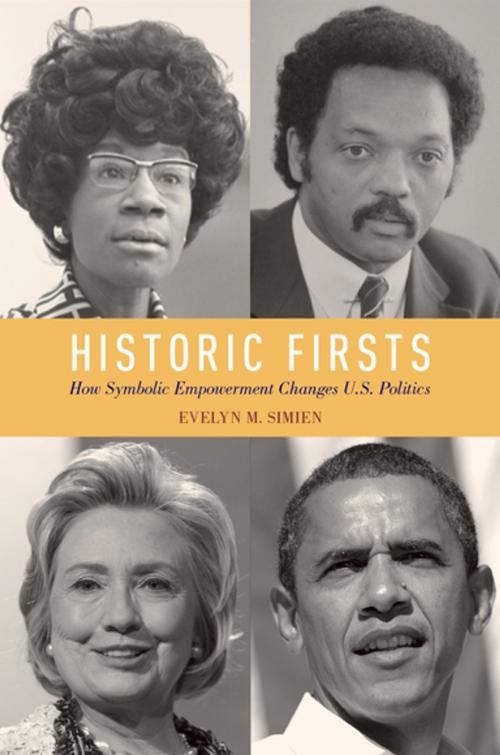Historic Firsts
How Symbolic Empowerment Changes U.S. Politics
Nonfiction, Social & Cultural Studies, Political Science, International, Foreign Legal Systems, Government, Elections| Author: | Evelyn M. Simien | ISBN: | 9780190297756 |
| Publisher: | Oxford University Press | Publication: | October 1, 2015 |
| Imprint: | Oxford University Press | Language: | English |
| Author: | Evelyn M. Simien |
| ISBN: | 9780190297756 |
| Publisher: | Oxford University Press |
| Publication: | October 1, 2015 |
| Imprint: | Oxford University Press |
| Language: | English |
The 2008 presidential election made American history. Yet before Barack Obama and Hillary Clinton, there were other "historic firsts": Shirley Chisholm, who ran for president in 1972, and Jesse Jackson, who ran in 1984 and 1988. While unsuccessful, these campaigns were significant, as they rallied American voters across various racial, ethnic, and gender groups. One can also argue that they heightened the electoral prospects of future candidates. Can "historic firsts" bring formerly politically inactive people (those who previously saw no connection between campaigns and their own lives) into the electoral process, making it both relevant and meaningful? In Historic Firsts: How Symbolic Empowerment Changes U.S. Politics, Evelyn M. Simien makes the compelling argument that voters from various racial, ethnic, and gender groups take pride in and derive psychic benefit from such historic candidacies. They make linkages between the candidates in question and their own understanding of representation, and these linkages act to mobilize citizens to vote and become actively involved in campaigns. Where conventional approaches to the study of American political elections tend to focus on socioeconomic factors, or to study race or gender as isolated factors, Simien's approach is intersectional, bringing together literature on both race and gender. In particular she compares the campaigns of Jackson, Chisholm, Obama and Clinton, and she draws upon archival material from campaign speeches, advertising, and newspaper articles, to voter turnout reports, exit polls, and national surveys to discover how race and gender determined the electoral context for the campaigns. In the process, she reveals the differences that exist within and between various racial, ethnic and gender groups in the American political process at the presidential level.
The 2008 presidential election made American history. Yet before Barack Obama and Hillary Clinton, there were other "historic firsts": Shirley Chisholm, who ran for president in 1972, and Jesse Jackson, who ran in 1984 and 1988. While unsuccessful, these campaigns were significant, as they rallied American voters across various racial, ethnic, and gender groups. One can also argue that they heightened the electoral prospects of future candidates. Can "historic firsts" bring formerly politically inactive people (those who previously saw no connection between campaigns and their own lives) into the electoral process, making it both relevant and meaningful? In Historic Firsts: How Symbolic Empowerment Changes U.S. Politics, Evelyn M. Simien makes the compelling argument that voters from various racial, ethnic, and gender groups take pride in and derive psychic benefit from such historic candidacies. They make linkages between the candidates in question and their own understanding of representation, and these linkages act to mobilize citizens to vote and become actively involved in campaigns. Where conventional approaches to the study of American political elections tend to focus on socioeconomic factors, or to study race or gender as isolated factors, Simien's approach is intersectional, bringing together literature on both race and gender. In particular she compares the campaigns of Jackson, Chisholm, Obama and Clinton, and she draws upon archival material from campaign speeches, advertising, and newspaper articles, to voter turnout reports, exit polls, and national surveys to discover how race and gender determined the electoral context for the campaigns. In the process, she reveals the differences that exist within and between various racial, ethnic and gender groups in the American political process at the presidential level.















